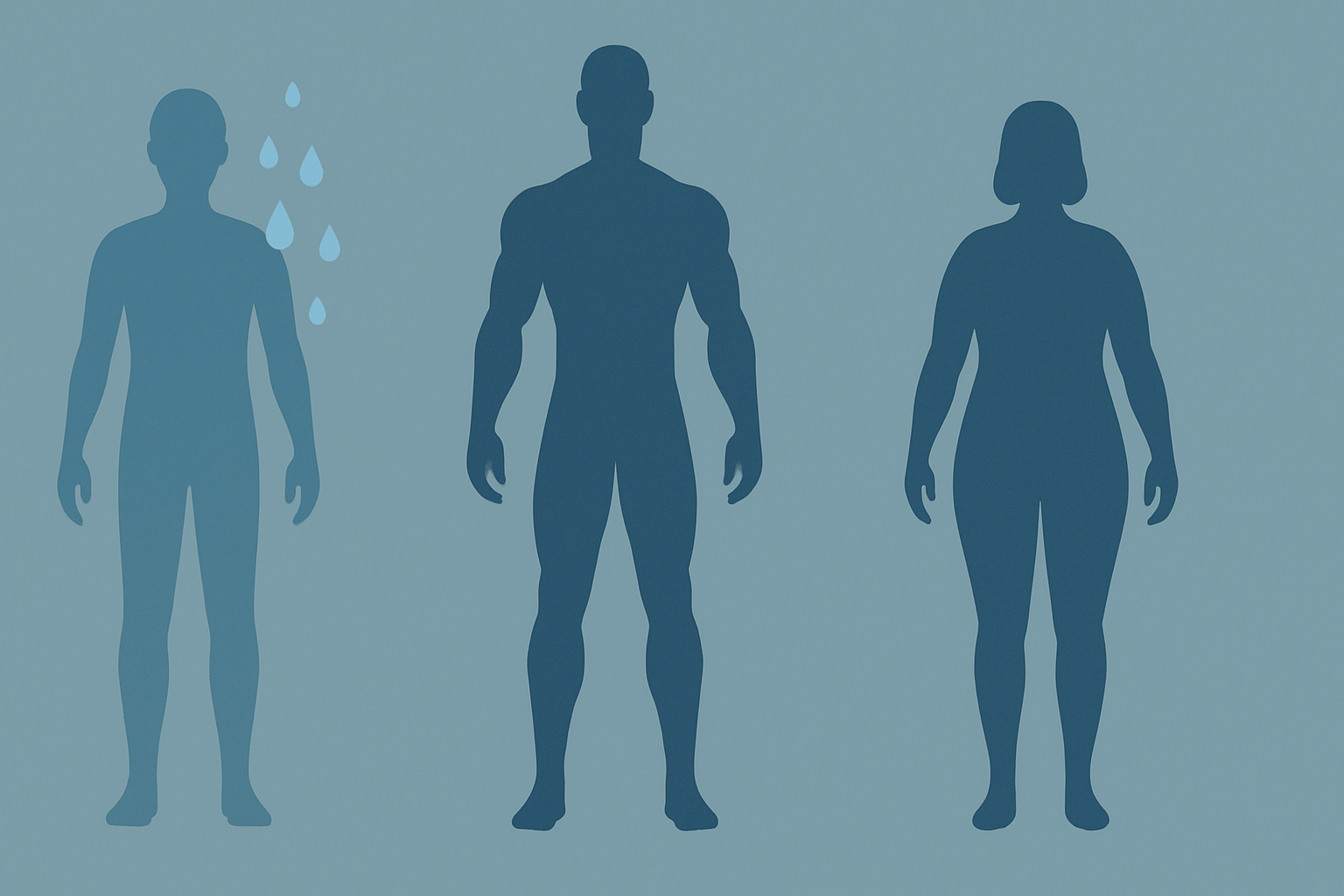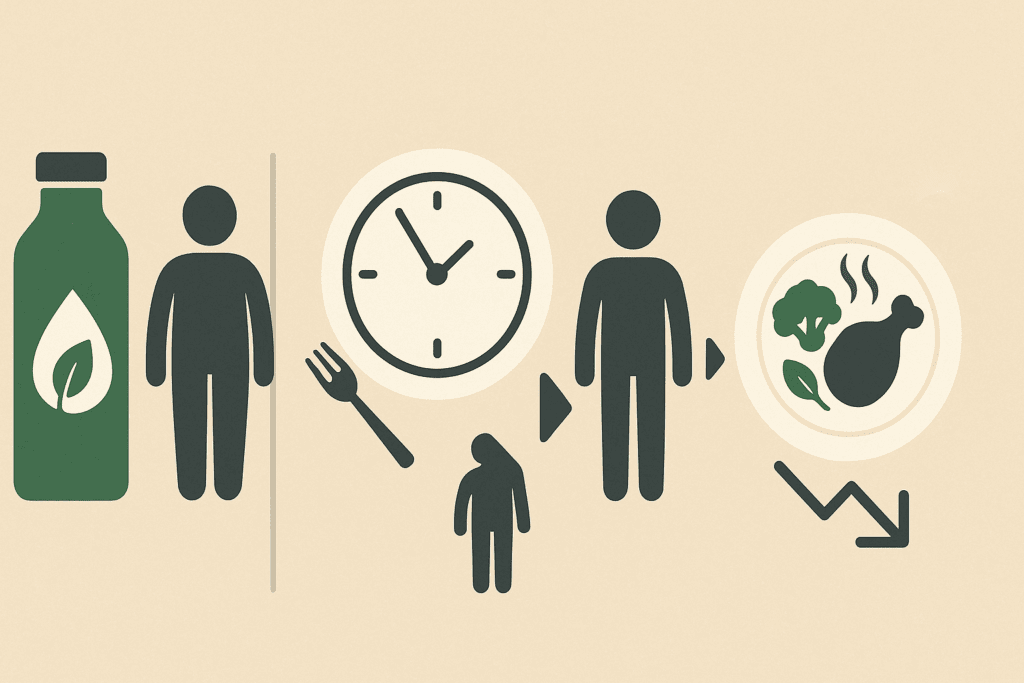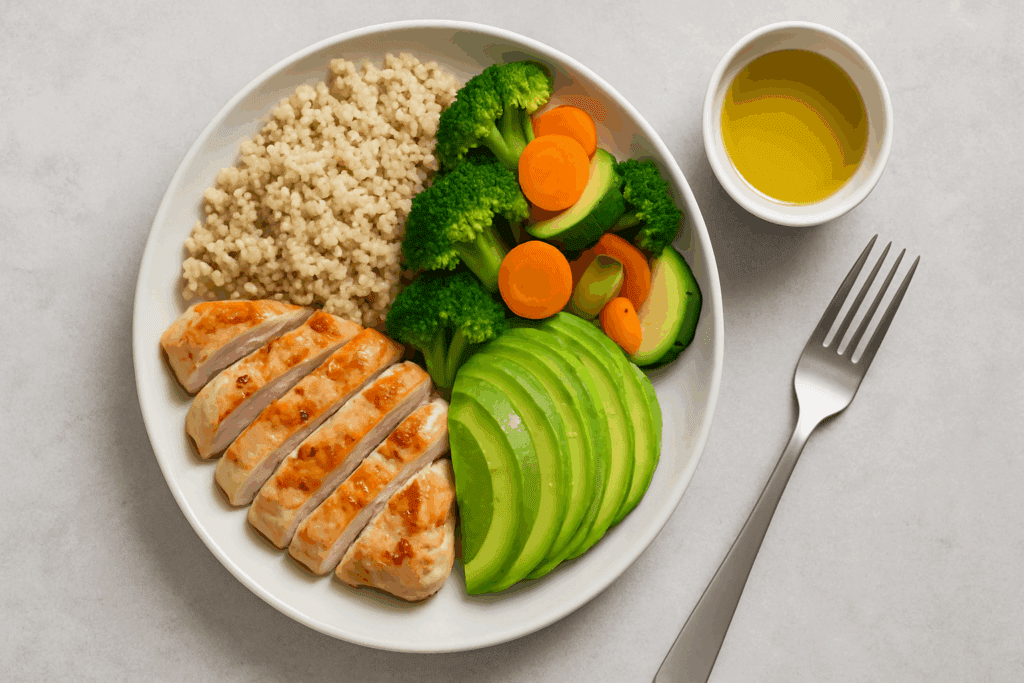The desire to shed pounds quickly is not new. For many, the allure of rapid weight loss stems from a looming vacation, a special event, or simply the longing to feel lighter and more confident. Among the most commonly asked questions in this pursuit is: can I lose 10 pounds in 2 weeks? While the internet is awash with conflicting advice, fad diets, and anecdotal success stories, it’s critical to approach this goal with a mindset grounded in science, expert opinion, and long-term health. Achieving a 10 lb weight loss in such a short period is not impossible, but it raises essential questions about safety, sustainability, and biological individuality.
You may also like: Expert-Backed Weight Loss Tips for a Healthier Lifestyle: What You Need to Know for Long-Term Weight Control and Wellness

Understanding What Losing 10 Pounds Really Means
When someone says they lost 10 pounds in 2 weeks, what are they truly referring to? Is it fat, water weight, or muscle mass? The human body is a complex system, and weight loss can occur in various forms. A significant portion of early weight loss, especially during the first week of a new diet or exercise plan, is often due to the depletion of glycogen stores. Glycogen, a form of carbohydrate stored in the muscles and liver, binds with water. As the body uses up glycogen, it also sheds water weight. This explains why many people claim they lost 10 pounds in a week when starting a new regimen—much of that initial drop is not fat but fluid.
Moreover, muscle loss can occur when calorie restriction is too aggressive or when protein intake and strength training are inadequate. Fat loss, the most desirable form of weight reduction for health and aesthetics, typically occurs at a slower pace. For most individuals, losing one to two pounds of fat per week is considered safe and realistic. So, when assessing whether a 10 lb weight loss in two weeks is feasible, it’s vital to distinguish the type of weight being lost and its implications on overall health.

The Role of Caloric Deficit in Weight Loss
At its core, weight loss is a matter of energy balance. The body must expend more calories than it consumes to tap into stored energy reserves, primarily body fat. Creating a caloric deficit of 500 to 1,000 calories per day can result in a weight loss of approximately one to two pounds per week. To reach a goal of 10 pounds in 2 weeks, an individual would need a daily deficit of around 2,500 calories—an amount that borders on unsustainable and potentially dangerous for most people.
While increasing physical activity and reducing caloric intake are foundational strategies, pushing the body too hard in either direction can backfire. Severely restricting calories can trigger metabolic adaptations, where the body slows down its energy expenditure to conserve fuel. Additionally, extreme deficits often lead to nutritional deficiencies, fatigue, irritability, and the loss of lean muscle mass. This is why experts consistently emphasize the importance of a moderate and sustainable caloric deficit tailored to individual needs, activity levels, and health status.

The Science Behind Rapid Weight Loss Methods
There is no shortage of diets promising rapid results. From intermittent fasting to ketogenic plans and low-carb cleanses, many claim to help individuals lose 10 pounds in a week or two. However, the physiological mechanisms underlying these programs are not always centered on fat loss. For example, ketogenic diets drastically reduce carbohydrate intake, leading to a sharp decline in water weight. Similarly, intermittent fasting can create a caloric deficit and initially lead to quick results, but sustainability varies depending on the individual.
Detox diets and juice cleanses are particularly popular among those hoping to achieve a lost 10 pounds in a week outcome. While these regimens often produce immediate drops on the scale, they primarily result from severe caloric restriction and water loss. They do not equip individuals with the habits, skills, or nutritional knowledge needed to maintain weight loss long-term. More importantly, such restrictive protocols can have detrimental effects on the gut microbiome, blood sugar regulation, and mental health.
Medical Experts Weigh In on Losing 10 Pounds Quickly
Healthcare providers, dietitians, and exercise physiologists approach rapid weight loss with caution. Most agree that while it is technically possible to lose 10 pounds in 2 weeks, such results are not typically advisable unless under medical supervision. For individuals with obesity-related complications, short-term rapid weight loss may be implemented in clinical settings to quickly reduce risk factors, but this is done with meticulous oversight.
The general consensus among experts is that the healthiest approach to weight management prioritizes gradual, sustainable changes. These include balanced nutrition, regular physical activity, stress management, and sufficient sleep. Quick-fix solutions often lead to a cycle of yo-yo dieting, where weight lost is rapidly regained, sometimes with additional pounds added. This pattern is associated with metabolic disturbances, increased fat storage efficiency, and psychological stress. Hence, even if someone successfully lost 10 pounds in 2 weeks, maintaining that loss requires a long-term behavioral shift.

Balancing Macronutrients for Effective Fat Loss
When pursuing a 10 lb weight loss in a short window, diet composition matters just as much as caloric quantity. A balanced intake of macronutrients—carbohydrates, proteins, and fats—supports bodily functions and preserves lean mass. Protein, in particular, plays a critical role in satiety, muscle maintenance, and metabolic health. Including high-quality protein sources such as lean meats, eggs, legumes, and dairy helps to prevent muscle breakdown during periods of caloric restriction.
Carbohydrates often receive undue criticism in weight loss discourse. While reducing refined carbs can lower overall calorie intake and improve insulin sensitivity, complex carbohydrates from whole grains, vegetables, and fruits provide essential fiber, vitamins, and sustained energy. Dietary fat, too, should not be feared. Healthy fats from sources like avocados, nuts, seeds, and olive oil support hormonal balance, brain function, and nutrient absorption. A well-rounded dietary approach, rather than severe restriction of any macronutrient, lays the foundation for safe and sustainable fat loss.

Hydration, Sleep, and Stress: The Overlooked Weight Loss Factors
Beyond diet and exercise, other lifestyle factors significantly impact weight loss outcomes. Hydration, for example, influences hunger, metabolism, and energy levels. Sometimes, the body misinterprets thirst as hunger, leading to unnecessary calorie consumption. Staying well-hydrated also supports kidney function and helps flush out metabolic byproducts that accumulate during fat breakdown.
Sleep is another critical yet underestimated component of weight regulation. Inadequate sleep disrupts hormones like ghrelin and leptin, which regulate appetite and fullness. Sleep deprivation can lead to increased cravings for high-calorie, carbohydrate-rich foods, and reduced impulse control. Moreover, chronic stress elevates cortisol levels, which promotes fat storage—particularly around the abdominal area. Incorporating stress-reducing practices such as mindfulness, yoga, deep breathing, or even walking in nature can positively influence both mental well-being and physical health outcomes.
Exercise and Movement: More Than Just Burning Calories
Physical activity remains a cornerstone of any successful weight loss program. However, its benefits extend far beyond calorie expenditure. Regular exercise enhances insulin sensitivity, improves cardiovascular health, supports lean muscle maintenance, and boosts mood through the release of endorphins. While high-intensity workouts may contribute more significantly to caloric burn, low-impact and moderate-intensity activities are also valuable, especially for beginners or those with joint issues.
A common mistake is relying solely on exercise to achieve rapid weight loss. The amount of physical activity required to burn 2,500 calories daily (the approximate deficit needed to lose 10 pounds in 2 weeks) is rarely sustainable or safe. Instead, integrating movement throughout the day—such as walking, stretching, and household tasks—complements formal workouts and enhances metabolic flexibility. Resistance training, in particular, is vital for preserving muscle mass and maintaining a higher resting metabolic rate during periods of weight reduction.
Realistic Expectations and Psychological Well-Being
Setting realistic expectations is crucial when embarking on any weight loss journey. Fixating on a number, such as trying to achieve a 10 lb weight loss in two weeks, can lead to disappointment if the body does not respond as quickly as hoped. Human metabolism is influenced by genetics, age, sex, hormonal health, sleep quality, and previous dieting history. Not all progress is linear, and non-scale victories—like improved energy, better sleep, and enhanced confidence—are equally important indicators of success.
Moreover, mental and emotional well-being should not be compromised for the sake of achieving rapid results. Dieting can be a psychologically taxing experience, especially when it involves deprivation or rigidity. Practicing self-compassion, focusing on internal motivation, and reframing setbacks as learning opportunities can foster a healthier relationship with food, body image, and personal growth. Sustainable weight loss is less about perfection and more about consistency and long-term behavior change.
When Rapid Weight Loss Might Be Appropriate
There are specific instances when accelerated weight loss under professional guidance is medically justified. For example, bariatric surgery candidates often undergo a preoperative rapid weight loss phase to shrink the liver and reduce surgical risk. Similarly, individuals with obesity-related comorbidities such as type 2 diabetes, hypertension, or fatty liver disease may benefit from short-term aggressive weight loss strategies to quickly improve metabolic markers.
However, these scenarios differ significantly from the average person seeking to lose weight for aesthetic or non-clinical reasons. Medical weight loss programs involve close supervision, blood work monitoring, and personalized nutritional support. For the general population, mimicking such protocols without expert input can be ineffective at best and dangerous at worst. It’s important to remember that weight loss should support—not compromise—overall health and functionality.

Maintaining Weight Loss Beyond the Two-Week Mark
One of the most significant challenges in weight management is not just losing weight but maintaining it. Many individuals who have lost 10 pounds in 2 weeks find themselves regaining the weight shortly after. This rebound effect is often the result of returning to old eating habits or abandoning structured routines. The body, having adapted to a caloric deficit, may also experience a natural drive to restore energy balance, leading to increased hunger and reduced energy expenditure.
To maintain weight loss, individuals must adopt habits that are both effective and sustainable. This includes mindful eating, meal planning, regular movement, and periodic self-check-ins. Tracking progress using a combination of tools—like photos, measurements, fitness performance, and how clothes fit—can provide more nuanced feedback than the scale alone. Most importantly, surrounding oneself with a supportive environment, whether through community, professionals, or digital tools, can reinforce commitment and resilience.
Frequently Asked Questions: Can I Lose 10 Pounds in 2 Weeks?
1. Is it possible to lose 10 pounds in 2 weeks without intense exercise?
While it’s technically feasible to lose 10 pounds in 2 weeks without high-intensity workouts, doing so safely requires strategic nutritional planning. Individuals who are more sedentary can still create a significant caloric deficit by optimizing their diet—focusing on high-volume, low-calorie foods, adequate hydration, and strict portion control. However, the absence of exercise increases the likelihood that some of the weight lost will come from muscle rather than fat. For anyone who has lost 10 pounds in a week through diet alone, maintaining that weight loss may prove difficult without eventually introducing consistent physical activity. Experts advise incorporating even light movement like walking to preserve muscle and improve metabolic efficiency.
2. What psychological effects can rapid weight loss have?
Attempting a 10 lb weight loss in a short time can sometimes foster unrealistic expectations, especially when initial success leads individuals to pursue ever more extreme measures. Some who have lost 10 pounds in 2 weeks report elevated stress and anxiety around food, often stemming from the fear of regaining the weight. There can also be social pressures to maintain visible results, which may encourage disordered eating behaviors. On the flip side, short-term success might offer a psychological boost, but it’s important to differentiate between motivation and obsession. For sustainable well-being, psychological support and a healthy mindset must accompany any physical transformation.
3. Can I lose 10 pounds in 2 weeks using supplements or fat burners?
Supplements marketed for weight loss may contribute to appetite suppression or increased energy expenditure, but they are not a magic solution. Some individuals claim to have lost 10 pounds in a week while using fat burners, but these results are usually compounded by dietary restriction and increased physical activity. Many over-the-counter products lack sufficient clinical evidence and can carry health risks, particularly when combined with caffeine or diuretics. It’s crucial to approach these products with skepticism and seek medical guidance before use. Ultimately, supplements may support—but should never replace—a balanced nutrition and exercise plan.
4. What role does gut health play in achieving a 10 lb weight loss quickly?
Gut health has become a focal point in recent weight loss research, especially regarding its impact on metabolism and inflammation. A well-balanced microbiome can support efficient digestion, hormonal regulation, and even hunger signaling. Emerging evidence suggests that individuals with diverse and healthy gut bacteria may respond better to dietary interventions, potentially making it easier to lose 10 pounds in 2 weeks. Probiotic-rich foods like kefir, sauerkraut, and yogurt, along with prebiotic fibers, can optimize gut health during weight loss. Still, these benefits unfold over time, so while the effects are valuable, they should be seen as a long-term investment rather than an immediate fix.
5. How do genetics influence whether someone can lose 10 pounds in 2 weeks?
Genetic predisposition plays a significant role in determining weight loss response, including metabolic rate, fat distribution, and insulin sensitivity. Two people following the same regimen might see vastly different results—one may have lost 10 pounds in 2 weeks, while the other sees only a few pounds shed. Variants in genes that affect appetite, fat oxidation, and muscle mass retention can influence the speed and nature of weight loss. Genetic testing is now available to help tailor fitness and nutrition strategies to an individual’s profile, although it should not replace foundational healthy habits. Recognizing these genetic factors can foster patience and reduce self-blame when progress slows.
6. What are the social implications of rapid weight loss goals like losing 10 pounds in a week?
Pursuing rapid weight loss, especially when aiming to lose 10 pounds in a week, can generate unexpected social responses—from admiration to concern. Friends and family may react differently depending on their understanding of your methods and motivations. In some cases, individuals may feel pressured to keep the weight off for social validation or even face judgment if the weight returns. This social scrutiny can impact self-esteem and relationship dynamics, particularly if the weight loss is part of a larger pattern of weight cycling. Being transparent about one’s health goals and emphasizing overall wellness rather than numbers on the scale can help mitigate these pressures.
7. What strategies help preserve muscle while achieving fast weight loss?
Maintaining muscle mass during a 10 lb weight loss effort requires careful attention to protein intake and resistance training. Even for those who lost 10 pounds in 2 weeks, the difference between fat loss and muscle loss often comes down to the inclusion of strength-building activities. Consuming 1.2 to 2.0 grams of protein per kilogram of body weight per day has been shown to support muscle retention in calorie deficits. Additionally, incorporating compound movements like squats, lunges, and push-ups helps stimulate muscle growth and metabolic health. Recovery, including rest and adequate sleep, is just as critical to preventing muscle degradation.
8. Can someone who has lost 10 pounds in 2 weeks keep it off long-term?
Long-term success after a rapid 10 lb weight loss depends on whether the individual transitions from short-term tactics to sustainable habits. Often, the methods used to lose 10 pounds in a week are not conducive to maintenance, especially if they involve severe restriction. However, if the rapid loss acts as a catalyst for behavioral change—like improved meal prep, regular workouts, and mindful eating—then the progress can be sustained. Gradually increasing calories to maintenance level while preserving structure can prevent rebound weight gain. Accountability tools such as journaling, digital apps, or professional coaching further support long-term stability.
9. How does age affect the ability to lose 10 pounds in 2 weeks?
Age is a significant factor when evaluating whether someone can lose 10 pounds in 2 weeks. Metabolic rate naturally declines with age due to hormonal shifts and a reduction in lean muscle mass. This means that older adults may need to work harder or allow more time to achieve the same results as their younger counterparts. That said, those who have lost 10 pounds in 2 weeks at older ages often do so through structured, nutrient-dense diets and joint-friendly exercises like swimming or walking. The focus in these cases should be more on preserving function and health rather than achieving rapid numbers on the scale.
10. What future innovations might support safe rapid weight loss?
As the science of personalized health evolves, future innovations could make a safe 10 lb weight loss more achievable without compromising health. Wearable devices with AI-driven feedback loops may help fine-tune caloric balance and recovery in real time. Precision nutrition platforms, which customize meal plans based on microbiome data or blood glucose responses, are already reshaping how people approach weight management. Medical-grade peptide therapies that enhance fat oxidation are also gaining attention, though they require further research. If someone aims to lose 10 pounds in 2 weeks in the future, such tools may enable more informed, effective, and safer strategies tailored to their biology.
Final Thoughts on Losing 10 Pounds in 2 Weeks Safely and Sustainably
The question “can I lose 10 pounds in 2 weeks” is one that captures attention and stirs both hope and skepticism. While it is technically possible, the manner in which those pounds are lost—and the aftermath—matters profoundly. Quick drops on the scale are often the result of water loss or muscle depletion rather than genuine fat reduction. For those who have lost 10 pounds in a week or two, the real work lies in sustaining that loss without compromising health, energy, or psychological well-being.
Safe and sustainable 10 lb weight loss strategies prioritize balanced nutrition, consistent physical activity, adequate rest, and emotional resilience. They move beyond rigid rules and instead promote lifelong habits that support metabolic health, hormonal balance, and personal empowerment. Weight loss is not merely a numbers game—it is a complex interaction of biology, behavior, and mindset. With expert guidance, realistic expectations, and a focus on overall wellness, individuals can achieve meaningful results that endure well beyond the initial two-week mark.
Further Reading:
How To Shed 10 Pounds — For Good!


